MTSU’s nationally renowned equine program excels at turning student dreams into reality
by Katie Porterfield
Horse Sense
Dave Whitaker and Anne Brzezicki oversee MTSU’s nationally renowned equine science program
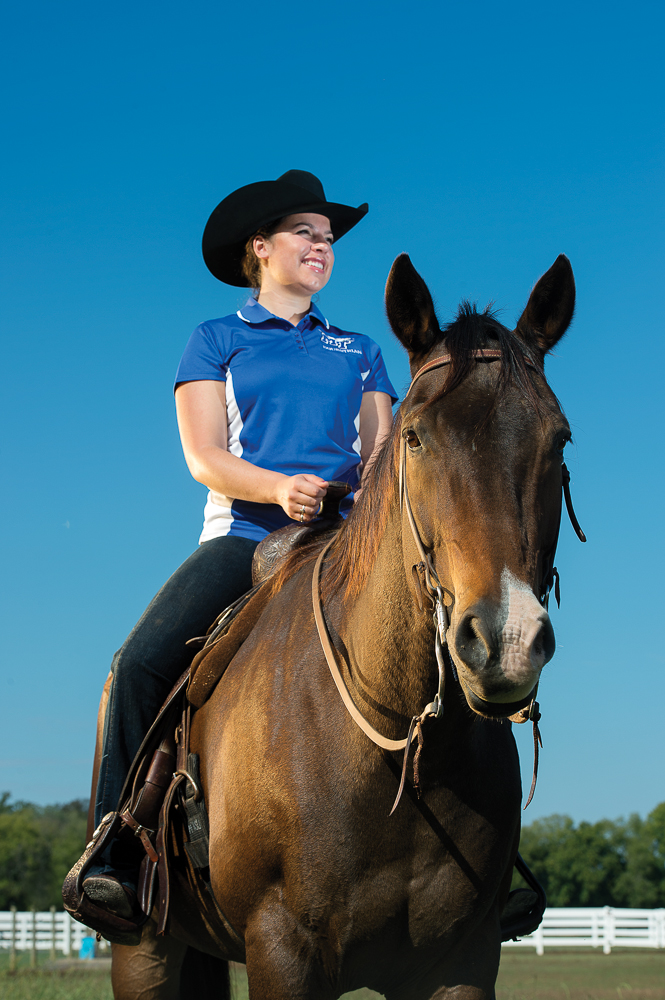
MTSU student Anna Caruso photographed by J. Intintoli
When Dave Whitaker, director of MTSU’s Horse Science program and coach of the horse judging team, makes his way past the trophy cases and photos that line the Horse Science Center hallway, it’s like taking a 30-year trot down memory lane.
Like a proud father bragging about his kids, Whitaker loves to talk about former students, their accomplishments at MTSU, and how they’re succeeding in the real world. And he’s not the only one. His colleague, Anne Brzezicki, equestrian program director and equestrian team coach, has been at MTSU almost as long as Whitaker and is equally eager to share stories about those in the horse science “family” who’ve gone on to do great things.
There’s the farrier in Florida who tends to the hooves of million-dollar horses; the equine rep for Tennessee Farmer’s Co-Op who travels the state educating people about proper feeding; the horse trainer who runs her own operation in Texas; the courtroom judge and the pharmaceutical rep who say their judging team experience helped them deliver more succinct messages; and the marketing manager at Blackberry Farm in the Smokies who was the 2003 Intercollegiate Horse Show Association National Champion High Point Western Rider.
Sure, faculty members at horse science programs across the country can likely tell similar stories, but at MTSU, Whitaker and Brzezicki do it with an unmistakable affection for their students. Students, Whitaker says, aren’t numbers, and when he passes students in the barn he calls them by name.
“We’ve got great facilities, but I tell parents you send your kids to people not places,” says Whitaker, a sort of academic cowboy with a deep voice and Southern drawl who is comfortable in khakis, a Western belt buckle, and cowboy boots. (He often wears a hat to complete the look.) “We have a wonderful set of people here that are genuinely interested in these students and their future, and there’s an opportunity to interact with us on a daily basis. We become very close to our students. They turn out to be almost like family.”
It’s that mentor/family mentality, along with the faculty’s insistence that students work hard and develop talents that will help them make a living, that has attracted students (and won over parents) from across the county. Throw in the state-of-the-art Horse Science Center next to the Tennessee Miller Coliseum—a world-class arena that hosts regional, national, and international horse show events—and it’s easy to understand why MTSU is home to one of the leading equine programs in the East.
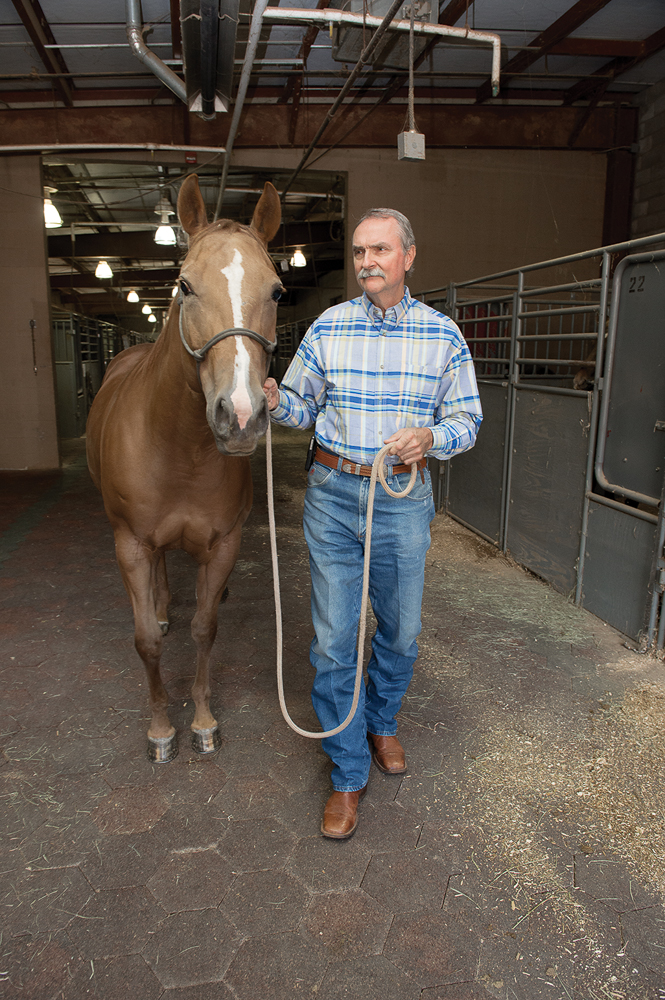
“If you’re lazy, go somewhere else because you’ve got to work while you’re here.” -Dave Whitaker
A Gift Horse
When Whitaker, who worked for MTSU for four years in the ’70s before leaving for a few years, took the Horse Science reins in 1982, he inherited a program that had a handful of majors but justified its existence by allowing students to take riding as a physical education credit. As the horse industry grew during the ’80s and ’90s, so did the number of majors, and riding as a recreational course became a thing of the past. Meanwhile, the horse judging team, which Whitaker started in 1976 during his first stint at the University, and the equestrian team, which Brzezicki launched in 1977 (she, too, left for a bit before returning in 1989), continued to gain popularity and win competitions.
In 1994, a bequest of more than $20 million from the John and Mary Miller Foundation led to the construction of the Tennessee Miller Coliseum (completed in 2003). The gift also enabled the University to put up the necessary matching funds to claim a U.S. Department of Agriculture grant (previously secured by Congressman Bart Gordon) to build the Horse Science Center and create two more faculty positions.
“I can’t say enough about the Miller gift and how it catapulted MTSU and the horse program forward,” Whitaker says.
Taking the Lead
Today, the program, which is the only one of its kind in the state, boasts about 100 majors and 70 minors, five instructors, and a secretary, barn manager, and assistant barn manager. There are typically about 10 graduate students (see sidebar), and about 50 University-owned horses. The judging and equestrian teams consistently place in the top five in national competitions, and perhaps more importantly, continue to teach life skills beneficial to any career. Whitaker and Brzezicki, superstars whose résumés include coaching championships, industry accolades, and board memberships, set the tone for a well-connected and talented faculty.
“None of our people sit in an office waiting for the next thing to happen,” Whitaker says. “They are out there doing something in the industry, which is great for our students because lots of times students go with them wherever they go.”
Whitaker also works hard to add courses to ensure that the curriculum stays relevant. An equine-assisted therapy class, for example, introduces students to principles applied at Saddle Up!—a recreational therapeutic riding program in Franklin that supports children with disabilities. Part of the coursework for the class includes spending time in Franklin to gain first-hand knowledge and experience about this specific field.
With Miller Coliseum right next door, there’s a lot of hands-on experience to be had in Horse Science at MTSU. The arena hosts shows almost every weekend, and in addition to being able to wander over and check out the scene, students are always needed to work at the coliseum.
“What a great opportunity for kids to connect with people and get some real life experience in what’s happening in the horse industry from a lot of different breeds and perspectives,” Whitaker says.
The coliseum is a top-notch facility (and one of the air-conditioned few). Plus, it sits right in the middle of the country, making MTSU the perfect place to host events such as the Intercollegiate Horse Show Association (IHSA) nationals. The University has already hosted that event four times—more times than any of the other 380 colleges that are part of IHSA.
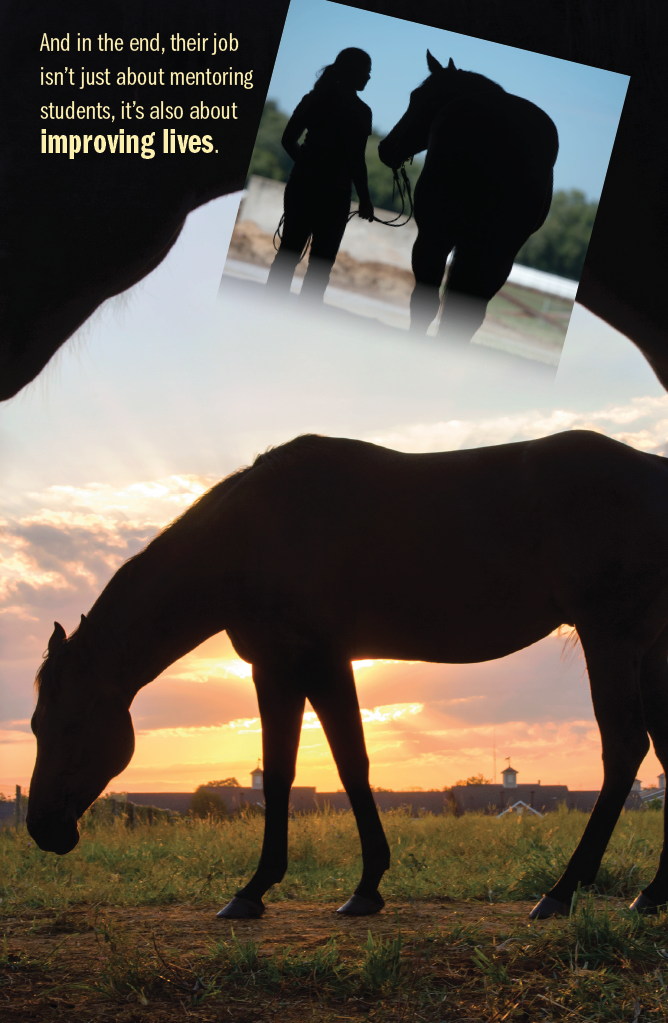 The Human Touch
The Human Touch
Miller Coliseum and the Horse Science Center, seven miles from campus, has classrooms, faculty offices, an equine reproduction laboratory, a heated barn with 65 climate-controlled stalls, and a teaching arena, so it’s a significant national draw. But Whitaker’s guiding presence and philosophies complete the package.
“I respect him with all the world,” says Travis Emore, an MTSU graduate who initially went into horse training and now manages the Miller Coliseum (and says Whitaker’s judging team prepared him more for communicating with people than any other experience he’s had). “And if you were [at the Miller Coliseum] with him during a horse show and walked through, you wouldn’t get very far. Between here and the barn, you are going to stop at least 10 to 12 times talking to people. Everyone has just a great respect for him.”
That has everything to do with Whitaker’s horse judging prowess, his industry reputation, and the fact that under his leadership, MTSU is turning out students who are ready to go to work.
“Dave cares very much about our students discovering and developing their talents, getting the necessary experience to gain some skills and confidence and finding their best place in the horse world,” Brzezicki says.
Indeed, the word “talent” is one that Whitaker references quite a bit, and it’s often used alongside two other favorites—“work ethic” and “passion.”
“When a kid comes in, we tell them, ‘If you’re lazy, go somewhere else because you’ve got to work while you’re here,’” he says. “And then we stress that you can have a passion for horses, but you also have to have a talent that enables you to make a living.”
That talent, Whitaker explains, isn’t always going to be horse training, grooming, or breeding. Because there are about 150 different careers associated with the horse industry (including everything from horse feed salesmen to equine insurance agents to lawyers who specialize in equine law), a student’s talent doesn’t have to be directly related to horses. It may, for example, pertain to journalism, marketing, management, or business. But Whitaker and the rest of the faculty do everything they can to help students figure out what those talents are.
“If students can match their passion and talent, they will be successful in the horse industry or a related pathway,” Whitaker says, adding that he’s a big fan of MTSU’s major/minor program because it allows students to choose a second area of study to support their career goals.
It’s an approach that appeals to parents and has allowed the faculty to continue to be successful in helping hard-working, deserving graduates find jobs in the industry, regardless of a down economy. And in the end, Whitaker says, their job isn’t just about mentoring students, it’s also about improving lives.
“We can give you the book education, but more importantly, what are we going to do about your life that’s going to cause you to have a better future?” says Whitaker, noting that almost half of MTSU’s graduates are first-generation college students. “We’re trying to change lives, and we’re trying to do it with one of God’s greatest creatures—the horse.” Spoken like a true father figure.
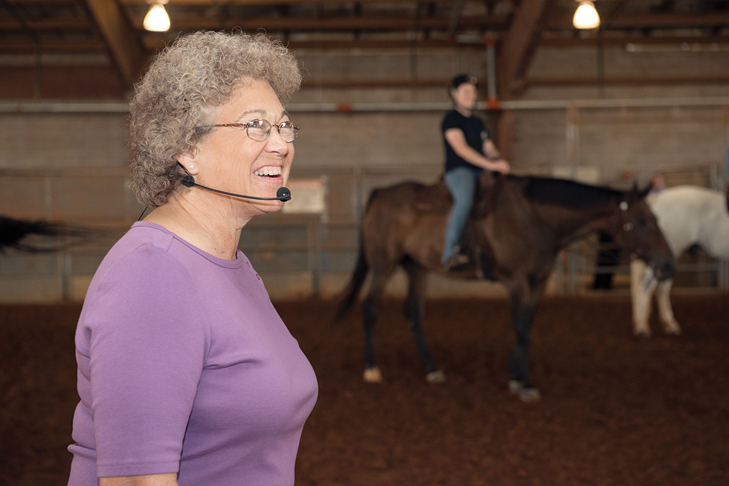
Anne Brzezicki
The Horse’s Mouth
The MTSU Equestrian Team’s 120 members range from those without previous riding experience to those who have competed nationally. The team welcomes all students, not just horse science majors, and competes across the Southeast in Intercollegiate Horse Show Association (IHSA)-recognized shows. MTSU has hosted the IHSA national collegiate finals (an equine version of the NCAA Final Four) a record four times. Program director Anne Brzezicki has been on the IHSA national board of directors since its inception.
Riders compete in hunter seat equitation on the flat and over fences, Western horsemanship, and reining. Two team members and one alumna earned reserve national champion honors at the 2012 IHSA nationals. A third student and a second alumna also had top 10 showings at that event.
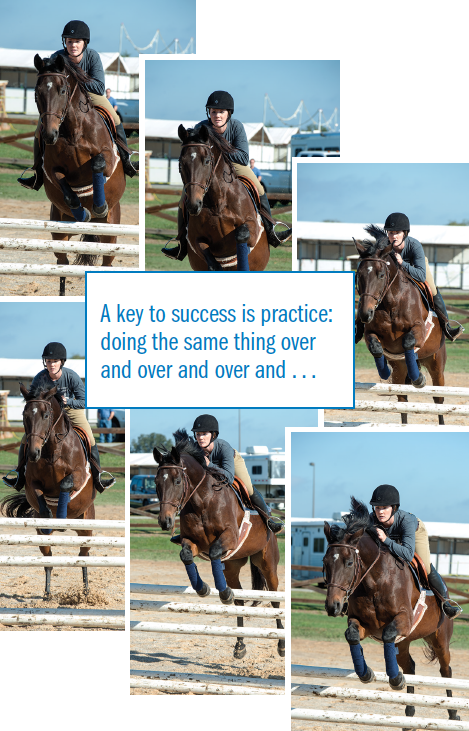
We asked Brzezicki a few questions about her nationally recognized equestrian program.
How do students benefit from being on the equestrian team?
Brzezicki: First, they are offered a solid education in two equestrian disciplines in excellent facilities on really good horses. Since they are all horse lovers who will mostly own horses, this is an investment in them that will enrich their entire lives. Then, our riders are expected to plan, organize, and produce several equestrian events each year and support industry events [at] our facilities or that we participate in through our industry network. This gives them real-world experience in project management useful in every field, including the horse industry. Our system is to encourage potential student leaders to move up through the ranks and eventually take the lead of our large team. Many businesses have fewer employees than our equestrian team has members, and the lessons learned are transferable to any business or organization.
You succeed in being a top-five program every year. What’s the secret to your success?
Brzezicki: There are no secrets, just a lot of planning and hard work, long hours, and determining what individuals need to be their best. We are clear from the first visit of prospective students that this takes hard work and dedication, and lazy people won’t succeed here or in the horse industry. We just keep putting one foot in front of the other with our goal in mind.
Keeping the Pace
The Master of Science in Horse Science program is galloping along at a respectable pace in its second year, but Horse Science Center director Dave Whitaker’s plans for the future include physical improvements that are absolutely necessary to ensure that MTSU holds its own.
To get more research funding from the National Institutes of Health or the U.S. Department of Agriculture, MTSU must meet certain facility codes. The USDA, for example, requires that stalls be a certain size and that horses in the field have proper shelter such as run-in sheds. Additionally, the Horse Science Center lacks a lab for conducting analyses that would increase MTSU’s research input into the industry.
“We may never be a land-grant university in terms of our research, but we can do research that will be applicable and helpful to the industry,” Whitaker says.
Satisfying those physical requirements will help MTSU capture top graduate students who opt to attend universities offering the best facilities as well as the best mentors. Such improvements will also enhance the Horse Science program as a whole.
“We need to put our students under a horse and let them make shoes or learn enough about farrier science so that. . . . they can at least tell if their farrier is doing a good job,” Whitaker says.
He’s determined to move the program to the next level, and he’s adamant that although MTSU has one of the best horse science programs, the University can’t afford to be complacent.
“We need to stay ahead of the curve in terms of updating, constantly moving forward, doing more research, and adding more value to the program, so when kids come here we can convince them and their parents that there’s a future in the horse industry.”

COMMENTS ARE OFF THIS POST